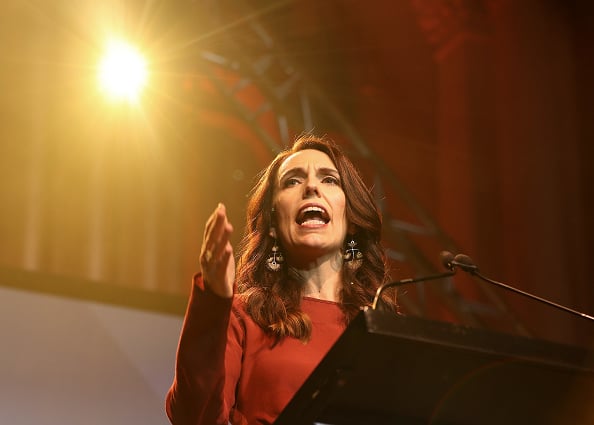Many of us live in a world where we’re told that happiness is the choice between 17 kinds of plastic-bottled water brands, even though the same water is coming out of our taps at home. We can purchase “bargains” at the 2 dollar shop that are made far away from the places that we bought them. We’re charmed by trinkets and we’re told that anything of value has been triple-wrapped in titanium strength packaging.
In the Christmas panic, we see our friends and neighbours race down the aisles, an arm outstretched, sweeping stuff off shelves into shopping trolleys, only vaguely aware that more than a billion people worldwide don’t have access to basic things, like water and clothing.
We buy stuff for its convenience without realising that its production and destruction are not convenient at all.
The Story of a Spoon is an epic tale, from Big Bang to Bin Bag. It’s reminder for all of us to stop racing down the aisles. To slow down. To, when we search for a Secret Santa gift, take a moment to think about how the stuff we buy came into existence and what happens to that stuff when we no longer have use for it.
It’s about asking ourselves, when you consider the history and future of a thing, is there a more sustainable alternative? It’s about understanding our inter-dependency with the natural environment and changing the way we consume for the better.
We’re starting to get it. Change is already underway. We’re doing more reducing, more reusing and more recycling.
But systemic change is required. Our individual actions are important, but they’re not enough.

The just, green, and peaceful future we deserve is possible and together we can build the power to make it happen!
SIGN THE PETITIONWhat can we do then?
The clue is in the fact that supermarkets in New Zealand now won’t give you a plastic bag at the checkout – because we worked together to demand system-wide change. There are now two billion fewer bags in the system each year. That’s huge, but plastic bags are the tip of the ice-berg, so we kept the pressure on and now there is a proposal for a much wider ranging plastic ban on the table.
But speaking of monsters, the ginormous plastic problem is just the tip of an even bigger iceberg.
This one threatens our very survival.
Beneath the tide of plastic pollution, our world is in crisis.
The coronavirus pandemic is just the latest symptom of the ongoing erosion of the natural systems that we depend on to survive and thrive. The systematic destruction of forests and land-based ecosystems is increasing epidemiological interactions between wildlife, livestock and people, contributing to zoonotic transfer. Soil health is declining dramatically and fish stocks are collapsing, leading scientists to raise the alarm about access to food in the near future. Drinking water supplies are becoming depleted and polluted. And our heating climate is putting our homes, communities, health, food supply and livelihoods at risk through the accelerating frequency of wildfires, superstorms and sea level rise.
Even more so than the plastic problem, you and I making changes to our diets and purchasing patterns will not be enough to steer clear of this .
We need system-wide change, and the good news is that right now, we have a once-in-a-lifetime opportunity to tackle these problems.
If used wisely, the billions set aside for the Covid recovery could help to restore the natural systems we depend on to survive – from the climate, to healthy soils, to abundant oceans and clean water. As a nation, we have a chance now to build an country where native forests are rebounding and once again alive with birdsong. Where water is clean and rivers are safe for swimming in again. An Aotearoa that is recognised globally for our world-leading regenerative farming and fishing sectors. Where we power our homes, businesses and transport with clean energy from the sun and wind. Where our streets are safe for walking and biking to school and work. And returning to that spoon, where we have embraced a circular economy, free of wasteful single-use bottles, bags, cutlery and packaging because we have replaced them with refillable, reusable systems like returnable glass bottles.
Jacinda Ardern has said that she and her new Government will “Build Back Better” from Covid.
Now more than ever, we must join together and speak up to make sure that this is more than just words.
The just, green, and peaceful future we deserve is possible and together we can build the power to manifest it!
Going back to normal is not an option. “Normal” was a crisis. The past (and present) was not only unjust and inequitable, it was unstable. Now that we have the opportunity, we must reimagine the systems our country is built on from the ground up.



